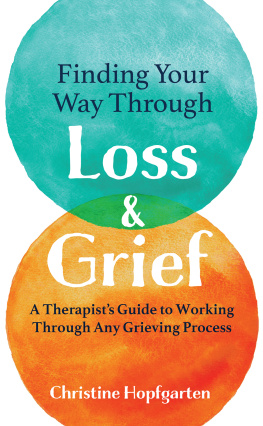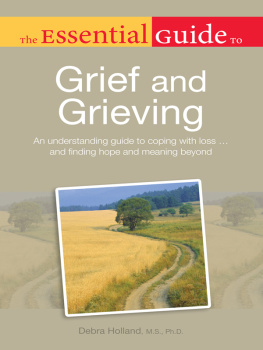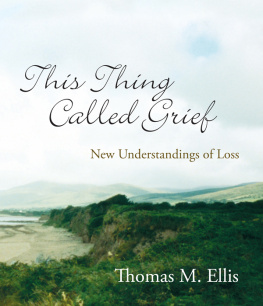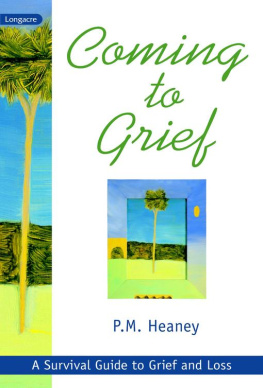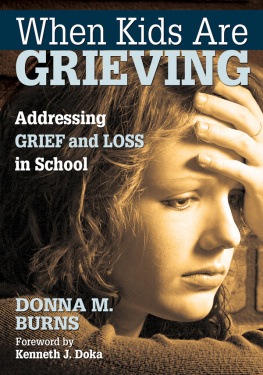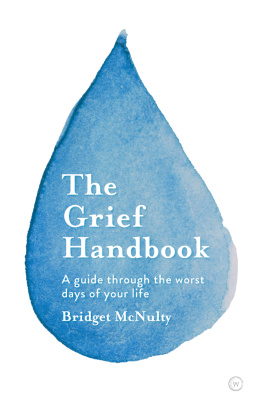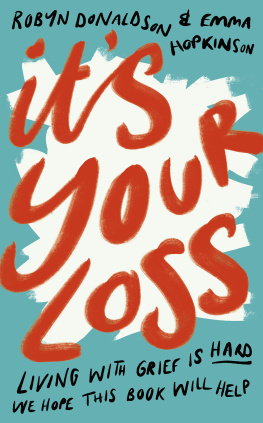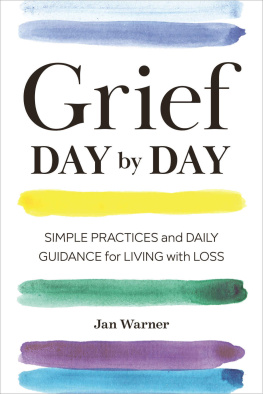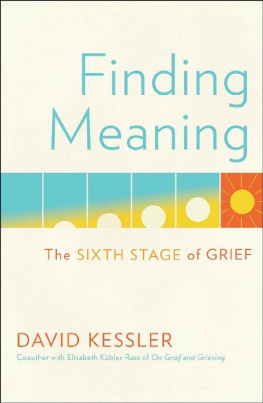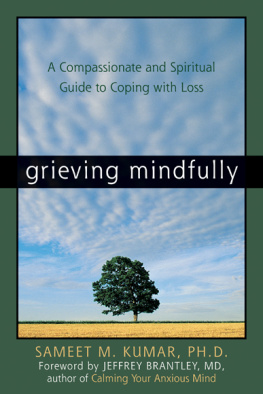

ABOUT THE AUTHOR
Christine Hopfgarten has been a practising psychotherapist for over a decade. She is a Cognitive Behavioural and EMDR Therapist, and Psychodynamic Psychotherapist and DIT Practitioner, specializing in trauma and relationship issues. She has worked for the London Fire Brigades Trauma Service and a variety of NHS psychotherapy services, as well as running her own private practice.
Christine is dedicated to helping individuals find their unique way to transform their lives and reduce their psychological suffering, conflicts and problems. Her career has focused on helping many who have experienced a variety of losses to process what has happened to them and find their personal resolution and way forward.

A Trigger Book
Published by Welbeck Balance
An imprint of Welbeck Publishing Group
20 Mortimer Street
London W1T 3JW
First published by Welbeck Balance in 2021
Copyright Christine Hopfgarten, 2021
Christine Hopfgarten has asserted her right under the Copyright, Designs and Patents Act, 1988, to be identified as the Author of this work.
All rights reserved. No part of this publication may be reproduced, stored in a retrieval system, or transmitted in any form or by any means, electronically, mechanical, photocopying, recording or otherwise, without the prior permission of the copyright owners and the publishers.
A CIP catalogue record for this book is available from the British Library.
US eBook ISBN: 978-1-80-129018-0
UK eBook ISBN: 978-1-80-129037-1
Typeset by Lapiz Digital Services
Note/Disclaimer
Welbeck Balance encourages diversity and different viewpoints. However, all views, thoughts, and opinions expressed in this book are the authors own and are not necessarily representative of Welbeck Publishing Group as an organization. All material in this book is set out in good faith for general guidance; no liability can be accepted for loss or expense incurred in following the information given. In particular, this book is not intended to replace expert medical or psychiatric advice. It is intended for informational purposes only and for your own personal use and guidance. It is not intended to diagnose, treat or act as a substitute for professional medical advice. Professional advice should be sought if desired before embarking on any health-related programme.
www.welbeckpublishing.com
To my three grandmothers may your strength and love be with me always.
And to my beloved friend Zeynep I miss you.
CONTENTS
?
PROLOGUE
14 June 2017
That day, one firefighter after the other came to see me in a little room, set up only that morning when I, like everyone else in the world, heard the shocking news.
There was a strange smell in the air that felt uncomfortably overpowering; I later learnt that it was the smell of singed protective clothing. Some firefighters were completely drenched in water; all of them were completely exhausted and in shock.
Some of the stories they told me provided a glimpse of the horrific images that had burnt into their minds. But there was also numbness, confusion and a sense of comforting yet highly alarming detachment from reality; an odd mixture of feeling strangely calm while being at the brink of falling into the depths of human despair. Many were yearning to see their families and children; hugging and being close to them seemed to be one of the few things that would provide them with safety and comfort from the chaos that was building in their mind.
This was the day of the Grenfell Disaster.
The Grenfell Disaster was a tragic fire that resulted in the deaths of 72 people in West London. A fridge-freezer in a fourth-floor apartment of a residential tower block Grenfell Tower caught fire, which spread to the outside of the building, where the external cladding caused the fire to quickly spread and engulf the tower. Throughout the night, the London Fire Brigade dispatched some 40 fire engines to the scene.
The initial shock of Grenfell was only the beginning for most of the firefighters who battled the fire that night. Apart from having witnessed the most horrendous losses and deaths of others, what followed were losses of jobs, relationships, status, identity and sense of self-worth to name only a few. What it meant to them to be a firefighter, and their confidence in being able to do what they saw as their strength and purpose, changed that day forever. While having to deal with the many losses, the trauma and overwhelming pain, they had to continue to cope while what had previously given them stability their organization, family and structure was also crushed by what had happened.
Working as a psychotherapist for the London Fire Brigade, I was there to support a huge number of operational staff as best I could, and I provided psychological treatment to those who needed it.
While I have been writing this book, the memory of Grenfell has faded for some, but continues to greatly affect others.
At the time of writing, a global pandemic is ongoing; it has shattered lives and caused a multitude of losses. Relationships have broken up, jobs have been lost, ill health has led to long-standing suffering and, most importantly, many lives have been tragically lost.
Grief can feel overwhelming and surreal at times. Losses continue to happen and greatly affect our lives; often it feels impossible to keep up with coming to terms with it all.
INTRODUCTION
THE PAIN AND STRUGGLES THAT ACCOMPANY LOSS
Having picked up this book, you have probably experienced a significant loss that you struggle to deal with. Your own personal loss might be due to a tragic event, or for a completely different reason. Whatever the loss, and however long ago it happened, in the midst of experiencing your loss you are likely to feel stuck, lonely, unable to cope and lost about how to begin to recover. The emotional and physical pain can be extreme, and may leave you wondering whether your reactions are normal.
Losses inflame old problems and create new ones, and often lead to people feeling overwhelmed.
If your loss happened fairly recently, you might have been asking yourself how you can cope and make sense of intensely overwhelming feelings; how you can move on from your loss, while your life feels like it has turned upside down and you are barely holding on to keep it going.
Or, you might be in disbelief about getting your life back on track if your loss has affected you for so long that you cannot even remember a time it has not been on your mind.
And how do you deal with the conflicting feelings of wanting to find happiness again, a way forward that feels alive and hopeful, while maybe not fully wanting to let go of what you have lost?
Many who are faced with major losses get stuck and are unable to cope, or struggle to fully re-engage with life, which ultimately leads to more suffering and losses. The feeling of constant failure, shame and a sense of being broken only adds to the pain.
WHAT ELSE COULD BE?
Just for a moment, I want you to allow yourself to disengage from your struggles and difficulties and visualize the following:
You no longer feel controlled by the difficult emotions your loss is causing you, and you feel alive and hopeful again.
Next page
